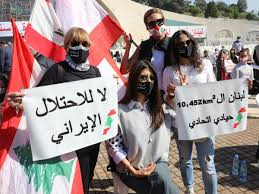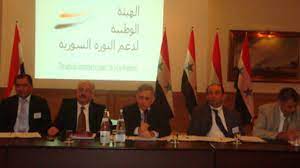Khaddam: Lebanon today is occupied by Iran and if this regime continues in Syria, the occupation will continue to hold the Lebanese by their throats and if this regime continues in Syria, the occupation will continue to hold the Lebanese by their throats
Former Syrian Vice President Abdel Halim Khaddam expressed that the fate of Lebanon is intertwined with the fate of Syria, stating that if the regime in Syria falls, Lebanon will be liberated. During the founding meeting of the “National Authority to Support the Syrian Revolution” in Paris, Khaddam emphasized in an interview with Al-Nahar newspaper, “Lebanon is currently under occupation, occupied by Iran. If the Syrian regime persists, the occupation will continue to oppress the Lebanese people.”
Khaddam highlighted the absence of a functioning state in Lebanon and the dominance of Hezbollah over the country’s institutions, including the President, army commander, and prime minister. He questioned, “Who truly holds decision-making power in Lebanon today? Lebanon remains occupied and can only be liberated once Syria is free. There exists a deep connection and interdependence between the two countries.” In response to a scenario where Syria remains unfree, Khaddam firmly stated, “Syria will be liberated.”
Addressing the potential impact of the Syrian crisis on Lebanese society, Khaddam rejected the possibility of a civil war in Syria, characterizing the situation as an armed conflict between the opposition and the regime. He emphasized that sectarian disputes have not arisen in Syria, noting that the first president of the Syrian Republic was a Christian.
Regarding the likelihood of the conflict between authority and revolution spilling over into Lebanon, Khaddam connected it to the determination of the Lebanese opposition. He further remarked on the volatility of President Bashar al-Assad’s decision-making, recounting an incident from 2004 when he discussed the extension of former Lebanese President Emile Lahoud’s term with Assad. Khaddam recalled that Assad initially opposed the extension but later changed his stance. He advised then-Prime Minister Rafik Hariri to accept the extension, resign, and leave the country.
When asked about Assad’s reversal of his decision and whether it occurred under pressure, Khaddam dismissed pressure as a factor, suggesting that Lahoud and Lebanese allies of the Syrian regime might have influenced Assad’s change of heart. Khaddam observed that different individuals can sway the president’s opinions by presenting contrasting arguments.


